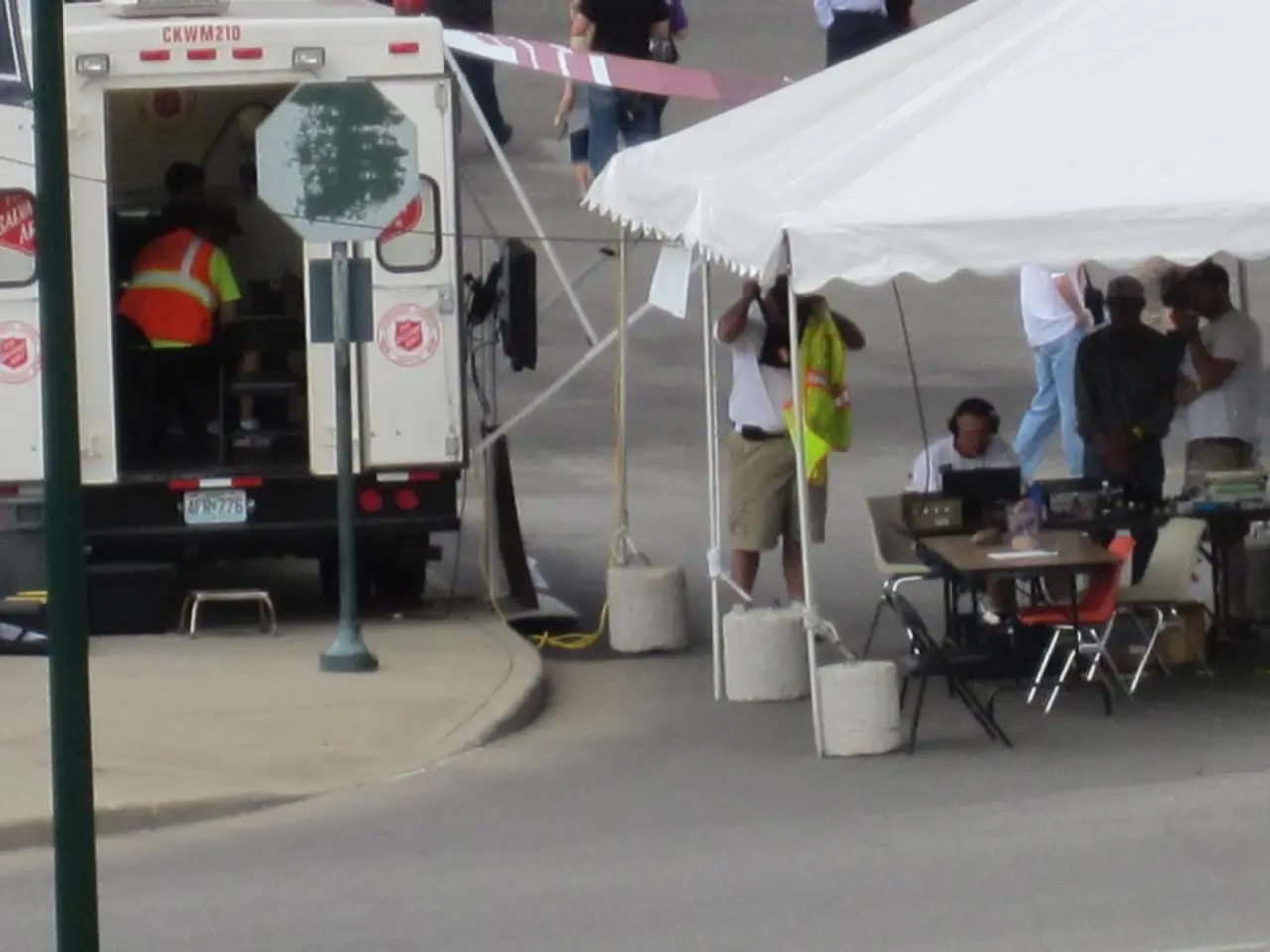Enhancing Hospice Care in Rural Regions: A Collaborative Effort - Enhancing Palliative Care in Rural Regions: Focus on Hospice Services
In Saxony-Anhalt, a region in eastern Germany, efforts are underway to enhance hospice and palliative care, particularly in rural areas and nursing homes.
Currently, there are 10 stationary hospices offering 117 beds across the region. This number is set to increase, with an expansion in Stendal adding 2 beds and a new building in Bad Lauchstädt set to provide an additional 12 beds, bringing the total to 131 beds.
Volunteers play a crucial role in hospice care, providing emotional support, conversations, and relief for family members. Around 850 volunteers and over 40 full-time staff are engaged in this important work.
Mobile hospice services, which accompanied 987 people last year, will be funded with 100,000 euros in the coming years, an increase from the 64,000 euros allocated in 2023.
The Hospice and Palliative Care Association of Saxony-Anhalt emphasizes the need to enhance care for terminally ill individuals in rural areas, with a focus on hospice work in nursing homes.
One key strategy for strengthening hospice care in rural nursing homes involves integrating hospice and palliative care services within existing healthcare and elderly care institutions. The Pfeiffersche Stiftungen, based in Magdeburg, are leading this initiative. They run multiple care facilities, including nursing homes and a unique hospice and palliative care service, focusing on integrating hospice care within their residential care facilities.
The Pfeiffersche Stiftungen also hold stakes in training centers for healthcare and nursing professions, indicating a strategic emphasis on professional education to raise hospice care standards in nursing homes and rural areas. Collaborations and mergers, such as the one advised by Luther law firm between Pfeiffersche Stiftungen and the Magdeburg University Hospital, suggest efforts to strengthen healthcare networks and resource sharing, which is important for rural hospice care infrastructures.
Minister President Reiner Haseloff (CDU) and Minister of Social Affairs Petra Grimm-Benne (SPD) acknowledged the high social significance of hospice and palliative care in the state. Haseloff described hospice and palliative care as a manifestation of love for one's neighbor, which benefits the state. Grimm-Benne referred to hospice and palliative care as humanity in action.
While no explicit policies or new government programs specifically targeting rural hospice care in nursing homes in Saxony-Anhalt were found, the integration of hospice services into established care providers, emphasis on staff training, and cooperation between hospital and care foundation appear to be key strategies.
Many people wish to be accompanied in their familiar surroundings, and the increase in hospice accompaniments in recent years is due to hospice offers becoming increasingly known and accepted, as well as an increase in the number of elderly and seriously ill individuals.
The expansion in Stendal, which was opened with approximately 5.2 million euros invested, a significant portion of which came from donations, according to the Ministry of Social Affairs, is a testament to the community's commitment to providing quality hospice care.







